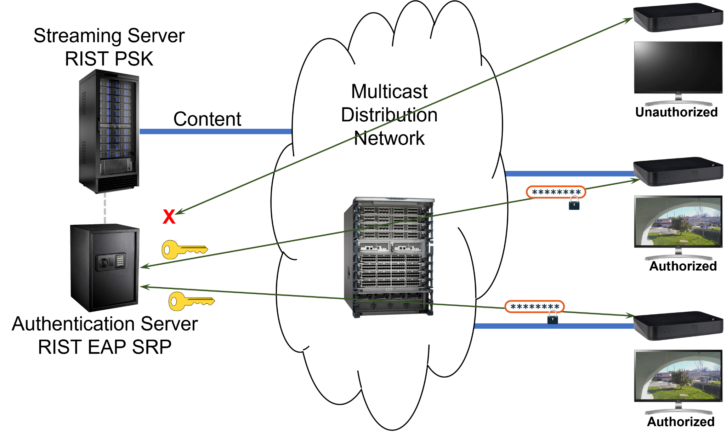The Reliable Internet Stream Transport (RIST) Forum has added support for IP Multicast authentication to its main specification.
The upcoming TR‑06‑2:2022 includes a mechanism to authenticate a multitude of receivers, the EAP SHA256-SRP6a Authentication Protocol, said the Forum.
Using the EAP SHA256-SRP6a Authentication Protocol, RIST can be used to securely create a multicast content distribution system without customers being locked into a proprietary vendor system, added the organisation.
It enables bidirectional authentication and is based on the use of username/password, removing the need for SSL certificates. RIST also includes mechanisms to de-authorise receivers on-the-fly without disturbing the content.

Ciro Noronha, president, the RIST Forum, said: “Since its development, RIST has natively supported IP Multicast, enabling one-to-many transmission with reliable, low-latency delivery. With security a growing concern for broadcasters, authentication becomes even more crucial when transmitting content over a combination of network lines.
“The RIST Multicast Authentication system offers a free alternative to costly proprietary DRM systems and ensures that only authorised receivers are able to decrypt the multicast content.”
The EAP SHA256-SRP6a Authentication Protocol will be published as part of the 2022 update for both RIST Main Profile (VSF TR‑06‑2) and RIST Advanced Profile (VSF TR‑06‑3).







